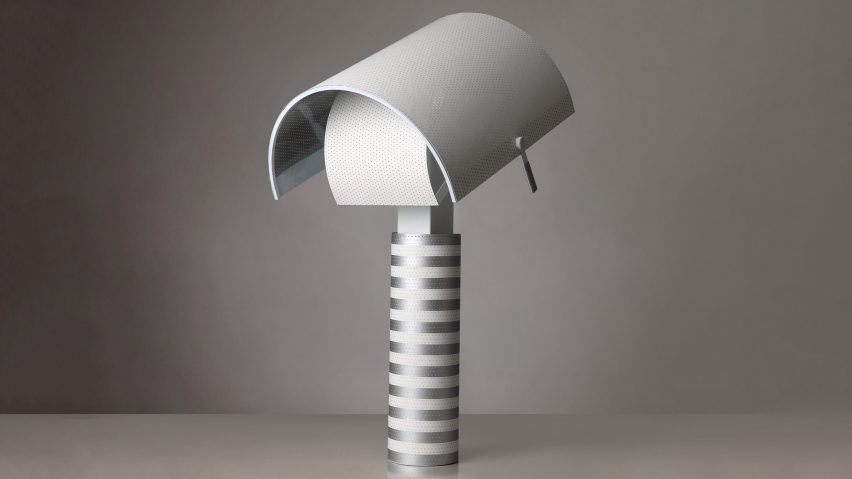
Haneul Kim recreates Mario Botta's Shogun lamp using salvaged cinema screens
Designer Haneul Kim has joined forces with CGV, South Korea's largest cinema chain, to form a series of table lamps from the company's discarded screens.
Over the past two years, CGV has had to remove or replace more than 70 of its cinema screens due to damage or theatre closures in the wake of the pandemic, resulting in a large volume of potential waste.
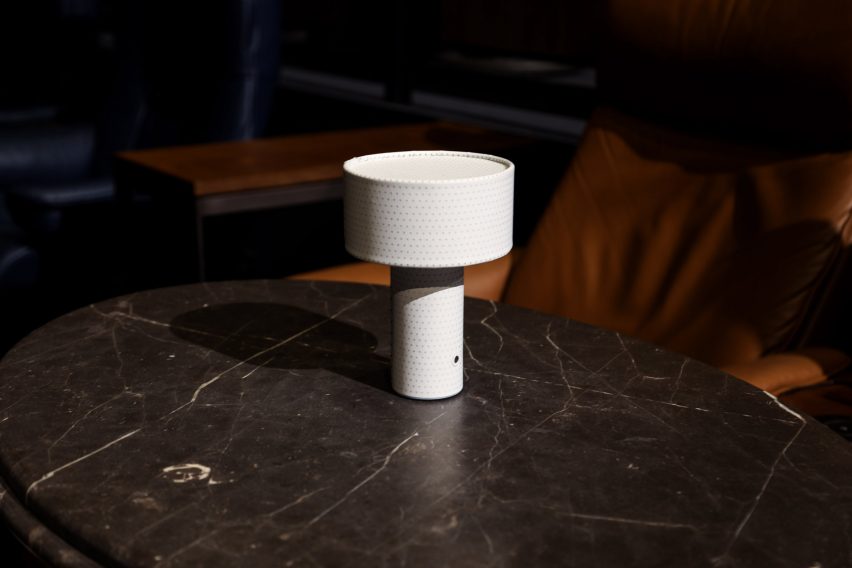
Each screen has a total area of over ten square metres and is made from a PVC-backed plastic that is extremely robust, flexible and fire retardant, which Kim says makes them suitable for various uses.
The material is also able to diffuse light due to its finely perforated surface, which allows sound from speakers located behind the cinema screen to reach the auditorium.
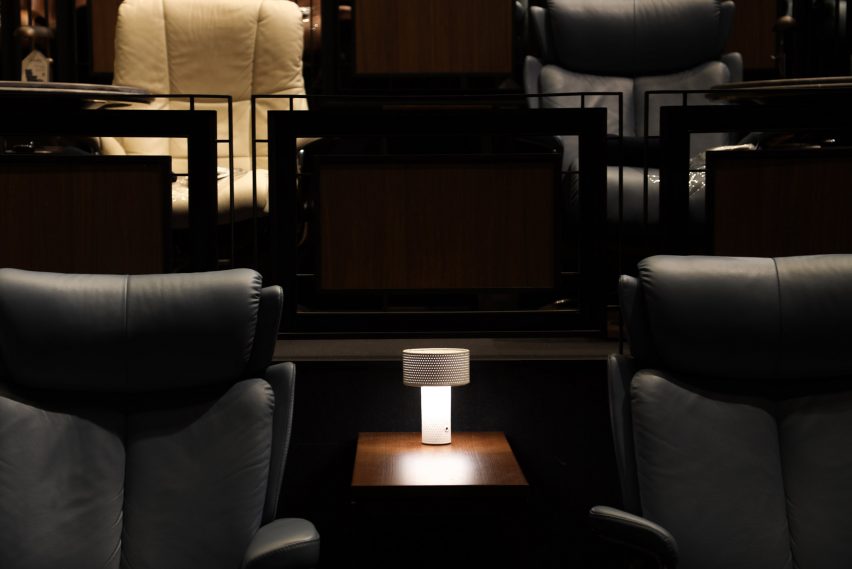
"Looking at these holes in the waste screen, I discovered a visual similarity with the aluminium perforated plate used in industrial materials," the designer told Dezeen. "I imagined what it would be like to replace the sound emitted through the screen with light."
The first lights Kim produced for CGV were small portable table lamps with a cylindrical body and larger cylindrical shade.
The designer makes the lamps himself by cutting the screens into strips that he wraps around simple shades made from wire and translucent PVC found in typical lampshades.
The first 100 of these lamps are now used in CGV's premium movie theatres, providing ambient lighting when placed on table surfaces next to the auditorium's comfortable lounge chairs.
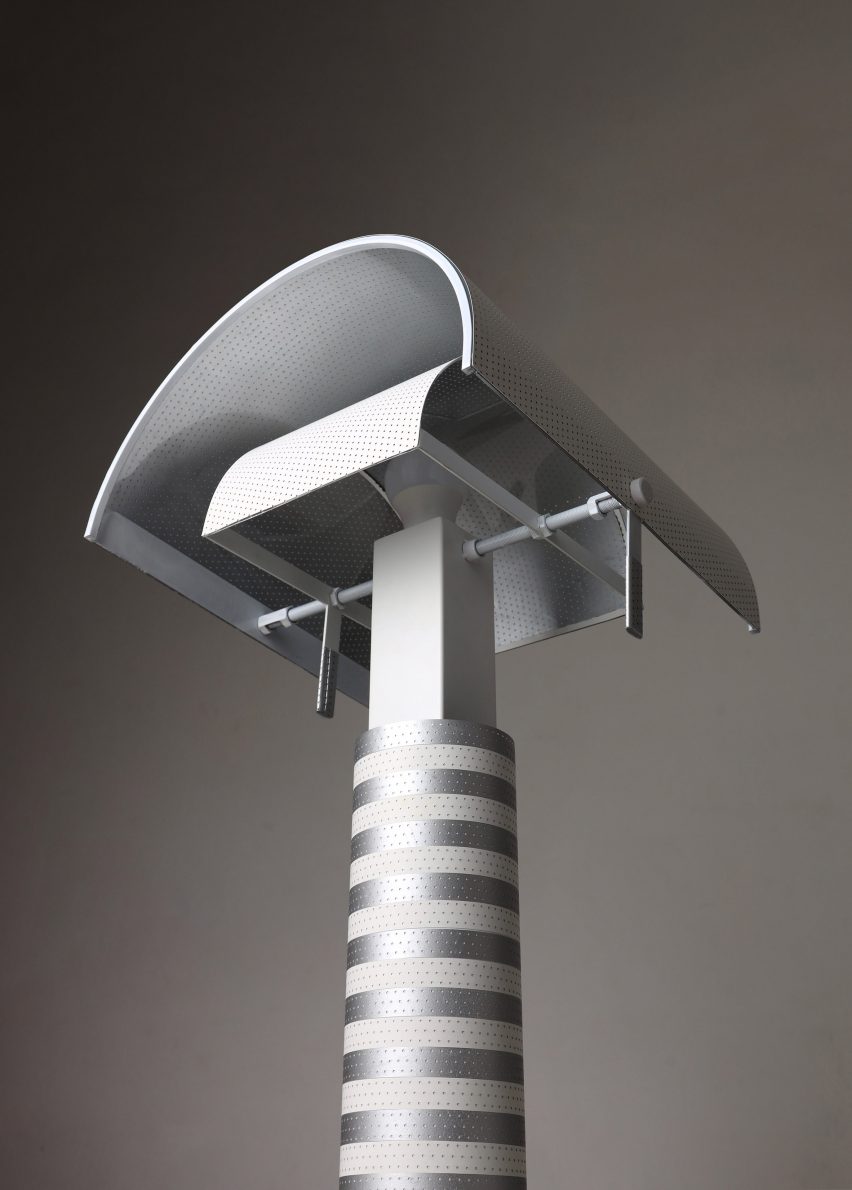
As a homage to one of his favourite design icons, Kim also used the same process to create his interpretation of the Shogun table lamp developed by Italian architect Mario Botta for Artemide in 1985.
Botta's original features a striped, painted base and a pair of overlapping diffusers made from perforated steel that can be adjusted to create a unique interplay of light and shadow.
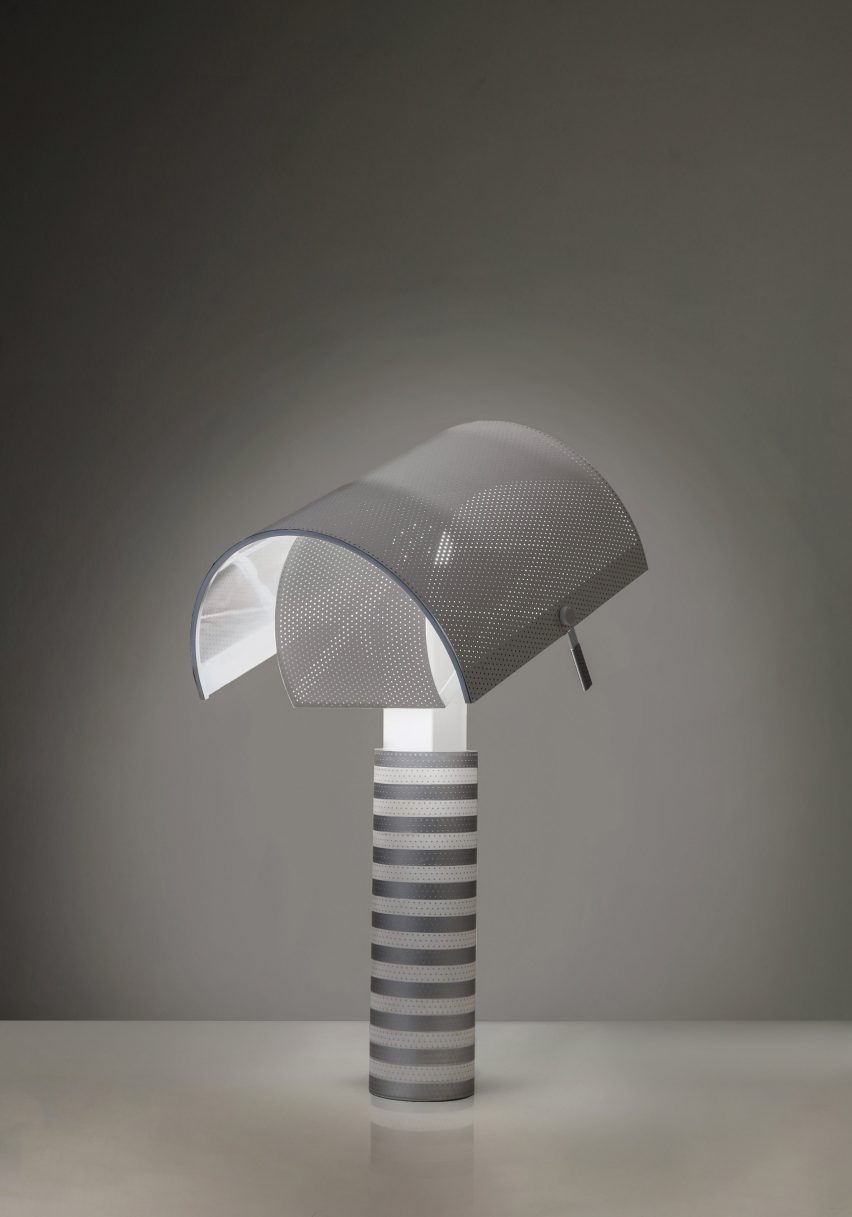
Kim used narrow strips of the PVC screen to recreate the shades as well as the striped pattern on the base, alternating the white front of the screen and the silver backing, which is used for showing 3D films.
All of the lamps incorporate LED light sources with three colour settings and a memory dimmer control. They are rechargeable via USB-C and have a battery life of up to 16 hours, allowing them to be used for several screenings between four-hour charges.
Kim is based in Seoul and regularly works with waste materials, making furniture from discarded face masks and cardboard boxes.